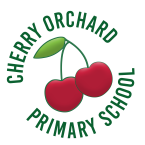Implementation
Learning is the core purpose to our school and is central to everything that happens.
At Cherry Orchard Primary School, Reading, English and Mathematics are taught daily. History, Geography, Science, Computing, Religious Education, Languages (in KS2), PSHE, PE and Music are taught weekly, and Art and Design Technology in alternate weeks.
As part of our passion to ensure children love reading, quality texts are integral to our curriculum approach, as we recognise that fluency in reading enables children to have access to the full curriculum. We believe children should leave our school being able to articulate themselves clearly, read and write confidently and effectively. A quality text is chosen to drive our sequence of writing and other supporting texts used to ensure that children are regularly exposed to a range of narrative, non-fiction and poetry texts.
Mathematics is delivered following the White Rose Scheme of Learning. In addition to this, there is a daily Maths Express time where children are able to practise and consolidate key skills and concepts. This is to ensure they are keeping 'on track' and becoming more confident in their recall and understanding.
To engage and immerse children in their learning experiences, every classroom learning environment reflects the learning being taught and previously taught, to try to bring learning to life. This will include relevant texts and display materials. This way, the environment helps support and deepen the learning experiences for all.
We endeavour to ensure that children see a relevance and purpose to their learning so plan that each sequence builds towards a purposeful outcome at the end of the theme. This is an opportunity for children to showcase their learning to a wider audience, for example through an end of unit essay, as exhibition to the rest of the school or during assembly to families, or through the publication of a class text.
Central to everything that we do is an expectation of well-thought out and delivered quality-first teaching. The curriculum is designed to ensure that learning is sequenced, building knowledge and skills over time, both within each year group and across the whole school, and also building on prior knowledge, making connections between new and previous learning. Developing these strands of learning ensures that there are many opportunities for the children to practice and apply their knowledge in a range of contexts so that they achieve deep, long-term learning and know more, remember more.
Our strategy for successful implementation of our intended curriculum is to create a culture where collaboration and professional dialogue between subject leaders delivers a curriculum that builds on prior learning, deepens knowledge and enhances skills that foster learning and achievement. We will engage in a constant cycle of review and evaluation in order to assess progression and achievement, and to keep learning fresh, current and carefully tailored to meet the needs of all children.
Alongside our academic curriculum, we ensure the whole-child is supported through events and activities planned outside of the classroom. For example: with planned-for outdoor learning in our Forest School and ponds areas; by utilising links with the wider community; taking children on residential visits in both years 4 and 6; taking part in charity days and events; by joining with other schools in our trust to share experiences such as the Year 6 Box Car Rally and sporting events. A wide range of clubs and enrichment activities such as individual music lessons, sporting matches, gardening competitions, music and dance festivals, singing in the Cathedral are a regular occurrence in our school. These are a vital part of each child’s development as life-long learners and ensure that individual talents are celebrated.
